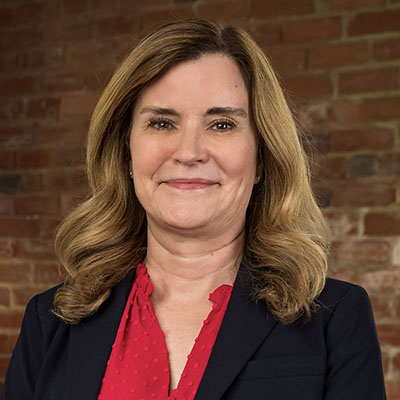Capt. Matthew Scott Burdett survived 22 years in the army –14 as a combat medic–and several tours in support of Operation Enduring Freedom and Operation Iraqi Freedom. Yet, he experienced his greatest threat at home: a distracted driver.
“I just knew there was something wrong,” says his wife, Jessica, recalling the day her husband was hit by a car. “So, I called a friend that lives about 10 minutes away from MCV Hospital and he went there. He said, ‘Yeah, Jessica: He’s here. There’s a chaplain waiting for you.’”

Three years before the accident, Jessica Burdett stands alongside her husband, Capt. Matthew Scott Burdett, after receiving the Military Spouse of the Year award during the fourth annual Fort Lee’s Heroes at Home Military Spouse of the Year luncheon. (Photo Credit: Amy Perry)
On Wednesday, March 6, 2018, Scott saw a motor vehicle collision on I-95. He pulled his truck onto the shoulder, activated his flashing lights, and went to see if he could help. While Scott was assisting his fellow motorists, a distracted driver crashed into his stopped pickup truck which, in turn, careened into him. Scott sustained a catastrophic brain injury.
“It was a distracted driver that changed our lives,” says Jessica, Scott sitting in a wheelchair to her left. “It’s crazy how in one instant you can talk to somebody and then minutes later they are totally different.”
Distracted driving claimed 3,166 lives in 2017 alone, according to the National Highway Safety Traffic Safety Administration. That same year, 2.9 percent of drivers admitted to using cell phones while operating a motor vehicle. Meanwhile, driving distracted for even a few seconds can have deadly consequences.
According to the Virginia Tech Transportation Institute, sending or receiving a text while driving takes a driver’s eye off the road for an average of 4.6 seconds. At 55 mph, that’s the equivalent of driving an entire football field, completely blind. The effects of distracted driving can be devastating.
Today Scott is confined to a wheelchair. Jessica works with him on eating, bathing, shaving, brushing his teeth, sitting up and stretching. “I have to dress him. I have to shower him,” she says.
Scott is the father of two girls ages 12 and 6. He was his “oldest daughter’s best friend.” Jessica’s greatest fear is that her youngest daughter won’t remember the way her father once was—“very outgoing and a great husband and friend.”
To alleviate the stress of handling the insurance company on top of everything else, Jessica contacted Allen & Allen attorney, Christopher J. Toepp. Toepp was integral in navigating the personal injury process while Jessica focused on her husband.
“Chris was very honest and upfront with us,” Jessica says. “He told us what to expect. Everything he said, he did. Every issue I had, he took care of. We really didn’t have to worry about anything.”
In a case like Scott’s, uncovering all the available insurance coverage is crucial. Through the investigative process, Toepp and his team at Allen & Allen were able to obtain a statement from a third-party witness establishing that Scott was involved in the “use of” the previously-disabled and otherwise uninvolved motor vehicle. That triggered additional insurance coverage available through the disabled motor vehicle’s insurance policy.
“I know how difficult it can be,” says Toepp, who himself sustained life-threatening injuries in a tractor-trailer accident in 2007. “I had to endure extended in-patient hospitalization that displaced my family. I understand the stress, pressure, and emotional impact that catastrophic injuries have on injured people, but more importantly, I understand the pressure it puts on their family,” he says.
Working to alleviate that pressure, Toepp was also able to navigate the interplay between the health insurance coverage and the tremendously large medical expenses to avoid any liens or other repayment obligations that could have negatively impacted Scott’s ultimate financial recovery.
“I knew that I would do everything I could to help Capt. Burdett and his two little girls,” says Toepp. “I am very proud that we were able to obtain the best possible outcome for this very deserving family.”
Today, that family is looking toward the future, where Jessica plans to keep pushing forward. “Get him walking,” she says of Scott, patting his leg. “That’s our next goal.”
Another goal? Jessica wants people to understand the devastating consequences of distracted driving.
“This isn’t the only story where someone has been affected by a distracted driver,” she says. “But I wish it would be the last.”




